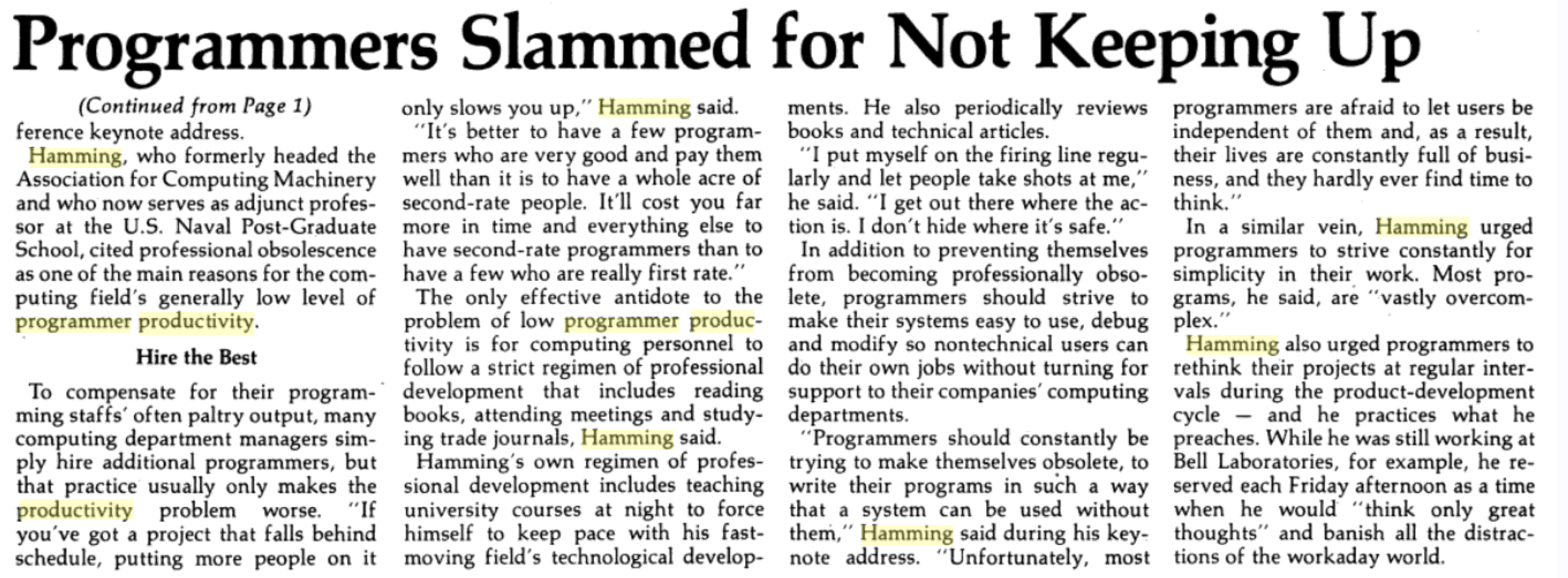Richard Hamming - Art of Doing Science and Engineering - Learning to Learn
"It's one thing to program as an individual. It's a very different problem when a group undertakes to do the job. A team of programmers is a very different problem than individuals writing programs. The group probably needs to get together and agree that they will accept certain constraints in their programming."
"Write psychologically rather than logically. Write so that you 5 years later you will know what you are doing! Don't do some cute trick. You won't remember."
What makes a good programmer? The same thing that makes a good writer.
"It is apparently the ability for the individual to set up criteria of what they privately consider good programming and criticize themselves and hold themselves to a high standard of writing."
"The only effective antidote to the problem of low programmer productivity is for computing personnel to follow a strict regimen of professional development that includes reading books, attending meetings and studying trade journals, Hamming said."
"Programmers should constantly be trying to make themselves obsolete, to write their programs in such a way that the system can be used without them. Unfortunately, most programmers are afraid to let users be independent of them..."
"Many studies have shown programmers differ in productivity, from worst to best, by much more than a factor of 10. From this I long ago concluded the best policy is to pay your good programmers very well but regularly fire the poorer ones—if you can get away with it! One way is, of course, to hire them on contract rather than as regularly employed people, but that is increasingly against the law which seems to want to guarantee even the worst have some employment. In practice you may actually be better off to pay the worst to stay home and not get in the way of the more capable (and I am serious)!" - pg. 32
"Teachers should prepare the student for the student’s future, not for the teacher’s past. Most teachers rarely discuss the important topic of the future of their field, and when this is pointed out they usually reply: “No one can know the future.” It seems to me the difficulty of knowing the future does not absolve the teacher from seriously trying to help the student to be ready for it when it comes." - intro
